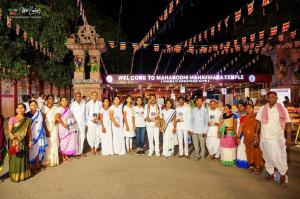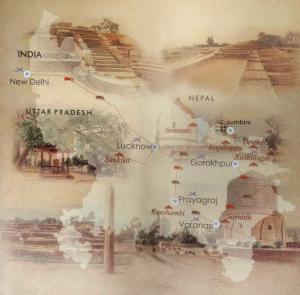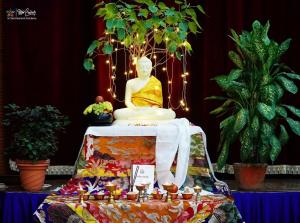19.05.2025.UT Daily NewS.A collection of SC.ST.Buddhist,Adivasi,reservation atrocity news of India.by Team Sivaji.9444917060.asivaji1962@gmail.com

The Wall of Caste— A Study Exposing Discrimination Against Dalits in South Asian Healthcare Highlights Why India’s Caste Census is Crucial!
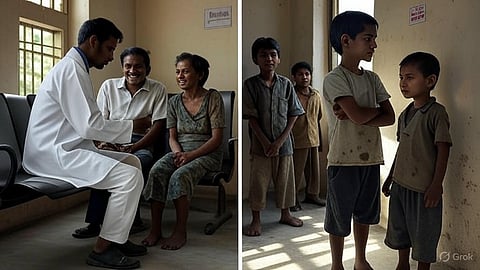
New Delhi- As India prepares for its much-anticipated caste census, it would be relevant to discuss a groundbreaking study that exposes the deep-seated discrimination faced by Dalit communities in accessing healthcare across South Asia.
Published on May 24, 2021, in the Asia Pacific Journal of Public Health, this research by Raksha Thapa, Edwin van Teijlingen, Pramod Raj Regmi, and Vanessa Heaslip analyzes nine studies to reveal how caste-based inequities, compounded by poverty and cultural barriers, systematically deny Dalits, historically labeled as “untouchables”—their right to healthcare. A large number of Dalits in rural areas in India are deprived from or are refused access to health services due to their social status.
Typical discriminatory behaviors include refusing to enter Dalits’ houses or allowing them into your house, share food and water, seating places, transport, and generally refusing to touch. Health discrimination is likely to be seen mainly in areas where care is provided, which can be health centers or a patient’s own home.
The findings highlight a harsh reality: despite legal efforts to dismantle caste hierarchies, discriminatory practices persist, severely impacting Dalit health and well-being. This study strengthens the case for India’s caste census, which could be a vital step toward understanding and addressing these inequalities.
The Burden of Caste: Dalits Excluded from Healthcare
The caste system, a 3,000-year-old social structure rooted in Hindu tradition, continues to fuel social, economic, and health disparities in South Asia. Despite being outlawed in India and Nepal, caste-based discrimination remains entrenched, particularly in healthcare. This study, which reviewed research conducted between 2000 and 2019 in India (seven studies) and Nepal (two studies), identifies four key themes: social stigma, poverty, cultural beliefs, and access to healthcare. These themes highlight the complex barriers Dalits, especially women, face, which undermine their health and dignity.
Key Findings of the Study
Socioeconomic Disparities and Poor Health Outcomes:
The study found that low socioeconomic status and limited land ownership are directly linked to poor health outcomes for Dalits. With restricted access to education and well-paying jobs, Dalits often have low household incomes. Social discrimination and poverty confine them to low-status jobs, denying them equal opportunities in the labor market.
In Bihar, India’s poorest state, local public medical services, often the only services affordable for Dalits, only addressed basic health needs. Despite developments in the Indian health structure including availability of subcenters, public health centers, and community health centers, poorer communities still experience a shortage of health institutions and skilled health workers.
Double Discrimination Against Dalit Women:
Dalit women face a dual burden due to their low caste status and the lower status of women in Hindu society. They endure increased risks of domestic violence, severe illnesses, and limited access to treatment beyond local facilities. For instance, Dalit women use antenatal care (ANC) services far less than higher-caste women, leading to worse maternal and child health outcomes. While wealthier Dalit households show slightly better ANC usage, the combination of low caste and poverty consistently results in poorer health outcomes.
Cultural and Social Barriers:
Cultural beliefs deepen health inequities. Many communities view Dalits as incapable of understanding health information, leading healthcare providers to withhold critical guidance. In some areas, illnesses are attributed to supernatural causes like spirit possession, causing Dalits to rely on traditional healers rather than modern medicine, further limiting their access to proper care.
Discrimination in Healthcare Access:
All nine studies confirm that caste directly impacts healthcare access. In Uttar Pradesh, only 19% of Dalits with chronic illnesses receive treatment due to high costs, long travel distances, and untrained providers. In Nepal, weak healthcare infrastructure disproportionately affects Dalits, who struggle with paperwork and accessing free services. Dalit healthcare workers, such as auxiliary nurse midwives, also face disrespect from colleagues and patients, undermining their ability to provide care.
Poverty and Stigma: The Dalit Dilemma
Poverty is a major barrier to healthcare for Dalits. Most live below the poverty line, relying on low-paying jobs like manual labor or basket weaving. They often lack awareness of free healthcare services or government schemes, and unlicensed practitioners frequently exploit them with exorbitant fees. Taking loans to cover medical costs is common, trapping families in a cycle of debt. Social stigma further compounds their struggles—healthcare providers often refuse to touch Dalit patients, and mental health issues are misattributed to supernatural causes, limiting access to modern treatment.
Dalit Women: The Most Vulnerable
Dalit women are the hardest hit by this discrimination. Their low caste and gender expose them to higher risks of malnutrition, anemia, and maternal mortality. The study notes that nearly 70% of Dalit women are illiterate, limiting their health literacy and ability to navigate healthcare systems. Economic dependence on men, restricted mobility, and domestic violence further hinder their access to care.
Dalit women usually do not visit hospital for treatment due to the travel distance to the hospital and they cannot afford travel expenses or high treatment fees.
The study emphasizes that caste-based discrimination is not just a social issue but a public health crisis. Despite Nepal’s 1962 ban on caste discrimination and India’s affirmative action policies, implementation gaps and entrenched cultural attitudes sustain inequalities. The authors argue that improving healthcare requires addressing sociocultural factors like stigma and gender inequality. Programs like self-help groups (SHGs) and ANC have helped, but they fall short without broader societal change. The study calls for caste to be included in global policy discussions, such as the Sustainable Development Goals (SDGs), to achieve targets like poverty reduction, good health, quality education, gender equality, and reduced inequality.

Uttar Pradesh, India Celebrates Buddha Purnima with Global Appeal
News provided by
May 17, 2025, 6:54 PM ET
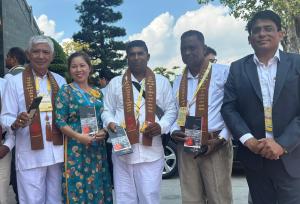
Uttar Pradesh Tourism participated in an event organized in Vietnam to celebrate the grand occasion of Buddha Purnima.
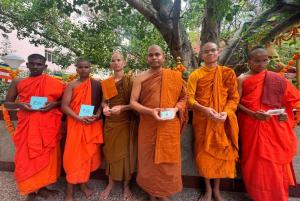
Participation in the program organised by the Mahabodhi Society’s at Bengaluru to promote the state’s Buddhist Circuit
A Global Celebration of Buddha Purnima
Uttar Pradesh Tourism marked Buddha Purnima with reverence, showcasing the state’s pivotal role in the Buddhist Circuit. “Uttar Pradesh is a spiritual odyssey where the Buddha’s teachings come alive,” said Shri Mukesh Kumar Meshram (IAS), Director General and Principal Secretary, Department of Tourism, Government of Uttar Pradesh. “The Buddha’s journey, from renunciation to enlightenment, awaits exploration across Uttar Pradesh’s sacred landscapes. We are dedicated to establishing Uttar Pradesh as a cornerstone of India’s Buddhist Circuit, preserving historic sites and sharing their profound stories. As a premier destination for spiritual tourism, the state is committed to ensuring a safe, welcoming, and tourist-friendly experience for visitors.”
The Buddhist Circuit, encompassing Sarnath, Shravasti, Sankisa and Kushinagar, offers travellers a chance to meditate in ancient monasteries, explore historic stupas, and connect with timeless teachings. Uttar Pradesh Tourism participated in Global and Local Celebrations to promote Buddhist sites in state:
Sarnath: In a significant tribute to Lord Buddha, the Department of Tourism & Culture, Government of Uttar Pradesh, in collaboration with the Central University of Tibetan Studies, Sarnath, unveiled the Dhih Research Journal (Buddharpan) during Buddha Purnima celebrations. The event, marked by the ceremonial lighting of lamps and the chanting of Pali and Tibetan mantras, blended spirituality and scholarship, reinforcing Uttar Pradesh’s commitment to preserving and promoting Buddhist heritage.
Shravasti: The Lord Buddha Welfare Foundation India organized a program with Dhamma Deshna, food donations, Dhamma Yatra and a serene Deepdaan ceremony, fostering spiritual reflection.
Sankisa, Farrukhabad: Participated in event to highlight Buddhist legacy & brought together devotees for Dhamma Deshna, food donations, and cultural activities, celebrating the region’s Buddhist heritage.
Bengaluru: Participation in the program organised by the Mahabodhi Society’s to promote the state’s Buddhist Circuit to a wider audience, emphasizing its cultural and historical importance.
Bodh Gaya, Bihar: Participated in the Trividh Purnima event to promote and highlight the universal message of peace, compassion, and inner awakening for all of humanity.
Vietnam: Uttar Pradesh Tourism participated in an event organized in Vietnam as part of the UN Vesak Day Celebrations to celebrate the grand occasion of Buddha Purnima. The event served as a reverence to the profound spiritual and cultural legacy of Lord Buddha, while also fostering international cultural collaboration.
A Global Invitation to Spiritual and Cultural Exploration
Uttar Pradesh beckons international travellers to embark on a journey of inner awakening and cultural discovery. The state’s Buddhist Circuit is a living testament to Lord Buddha’s legacy. These destinations, steeped in history and serenity, offer travellers a chance to walk where the Buddha walked, meditate in ancient monasteries and connect with timeless teachings. Uttar Pradesh Tourism is committed to preserving these sacred sites while promoting the state as a safe, welcoming and tourist-friendly destination for visitors.
As the world embraces spiritual living, Uttar Pradesh invites pilgrims, seekers and explorers to detox their minds, embrace simplicity and connect with the profound teachings of Lord Buddha. With world-class hospitality, enhanced infrastructure and a commitment to safety, the state is poised to welcome global visitors to its sacred and cultural treasures.
For media inquiries, contact the Directorate of Tourism, Government of Uttar Pradesh via email at info@uptourism.gov.in & for more information visit www.uptourism.gov.in.
RP
Directorate of Tourism,
Legal Disclaimer:
EIN Presswire provides this news content "as is" without warranty of any kind. We do not accept any responsibility or liability for the accuracy, content, images, videos, licenses, completeness, legality, or reliability of the information contained in this article. If you have any complaints or copyright issues related to this article, kindly contact the author above.
NOTE: This content is not written by or endorsed by "WROC", its advertisers, or Nexstar Media Inc.
Namsai in Arunachal Pradesh hosted the first International Convention on Buddha and the Culture of Northeast India.
#buddha #namasai #wion
About Channel:
WION The World is One News examines global issues with in-depth analysis. We provide much more than the news of the day. Our aim is to empower people to explore their world. With our Global headquarters in New Delhi, we bring you news on the hour, by the hour. We deliver information that is not biased. We are journalists who are neutral to the core and non-partisan when it comes to world politics. People are tired of biased reportage and we stand for a globalized united world. So for us, the World is truly One.
Please keep discussions on this channel clean and respectful and refrain from using racist or sexist slurs and personal insults.
Subscribe to our channel at https://goo.gl/JfY3NI
Check out our website: http://www.wionews.com
Join our WhatsApp Channel: https://bit.ly/455YOQ0
Connect with us on our social media handles:
Facebook: / wionews
Twitter: / wionews
Instagram: / wionews
Follow us on Google News for the latest updates
Zee News:- https://bit.ly/2Ac5G60
Zee Business:- https://bit.ly/36vI2xa
DNA India:- https://bit.ly/2ZDuLRY
WION: https://bit.ly/3gnDb5J
Zee News Apps: https://bit.ly/ZeeNews..
Pinarayi blames Centre for slashing SC/ST education funds
Chief Minister says his government will initiate schemes to ensure that the SC/ST communities are not left behind in Kerala’s development journey
Updated - May 18, 2025 08:40 pm IST - PALAKKAD

Chief Minister Pinarayi Vijayan addressing the State-level Scheduled Caste/Scheduled Tribe convention held at Malampuzha, Palakkad, on Sunday. | Photo Credit: K.K. Mustafah
Chief Minister Pinarayi Vijayan has blamed the Narendra Modi-led government at the Centre for slashing education and research funds for Scheduled Caste and Scheduled Tribe (SC/ST) communities. Inaugurating an SC/ST conclave at Malampuzha near here on Sunday, the Chief Minister said that the Centre had cut down scholarships for these communities.
“Caste discrimination remains rampant in higher education, leading to students dropping out and, in extreme cases, even taking their own lives,” said the Chief Minister, adding that increasing attacks on SC members were worrying.

Karnataka: Objection raised over completing general promotions without filling backlog posts of principal in government PU colleges
From 2016 to 2022, while granting promotions, a total of 80 principal posts were not given to SC/ST lecturers. The Commissioner of the Department of Social Welfare had suggested in his report on March 26, 2025, that this should be remedied.
Updated - May 19, 2025 03:43 pm IST - Bengaluru

The SC/ST Lecturers Association and the State Government SC/ST Employees Association have written to the Chief Minister and several Ministers seeking legal action against officials who violated rules. Image for representation purposes. | Photo Credit: H S MANJUNATH
The Scheduled Caste and Scheduled Tribe (SC/ST) lecturers of government pre-university colleges have taken exception to the Department of School Education (Pre-University) completing the general promotions for the cadre of principals on May 15, 2025, without carrying out promotions for the 80 backlog posts of principal, who were deprived of it between 2016 and 2022.
This, they say, is in defiance of the directives of the Committee on the Welfare of Scheduled Caste and Scheduled Tribes of the Karnataka Legislative Assembly.
,https://www.facebook.com/61554855423819/videos/24062230906728396/?mibextid=rS40aB7S9Ucbxw6v
Mystery shrouds Dalit man death in fire
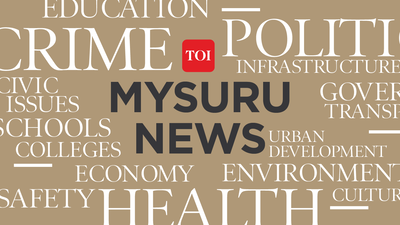
No reservation for candidates if caste certificate not in prescribed format: SC
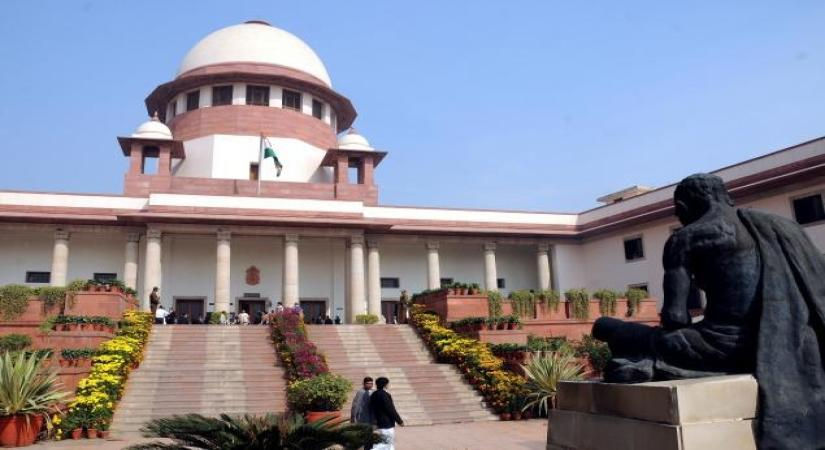
In a significant judgment, the Supreme Court has ruled that to apply under any recruitment advertisement, it is mandatory to submit the caste certificate in the specific format mentioned in the advertisement. A candidate cannot claim exemption from this requirement merely on the basis of belonging to a reserved category.
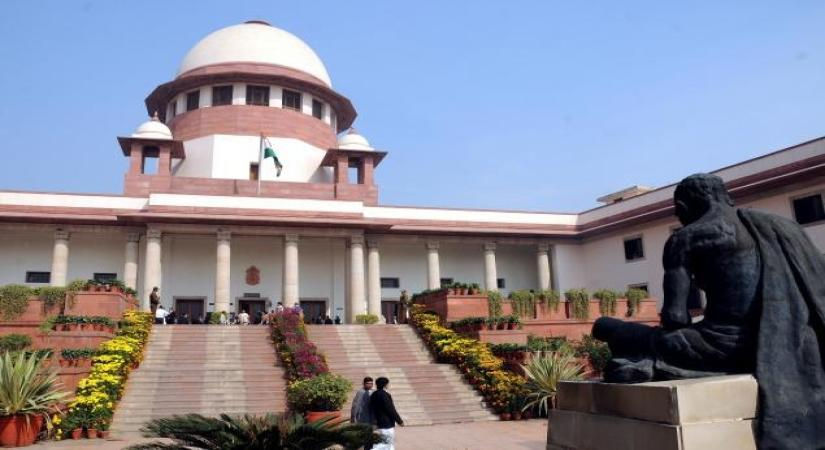
A bench of Justice Dipankar Datta and Justice Manmohan observed this judgment in relation to an application submitted by a candidate under a recruitment advertisement issued by the Uttar Pradesh Police Recruitment and Promotion Board (UPPRPB).
The candidate had submitted an OBC (Other Backward Class) certificate in a format recognised by the central government, while the advertisement specifically required the certificate in a format prescribed by the state government. Since the candidate did not submit the certificate in the required format, they were considered under the unreserved category.
When the candidate was excluded from the recruitment process on this basis, they first approached the Allahabad High Court. After not receiving any relief from the there, they moved the Supreme Court. The Supreme Court also upheld the high court’s decision and stated that it is the responsibility of every candidate to comply with the rules and conditions stated in the recruitment advertisement.
In the verdict delivered by Justice Datta, reference was made to the 2013 case Registrar General, Calcutta High Court vs Srinivas Prasad Shah \[(2013) 12 SCC 364], which stated that if a certificate is not in the prescribed format and not issued by the competent authority, it will adversely affect the eligibility of the candidate.
Jalna (Maharashtra), May 18 (PTI) Republican Sena president Anandraj Ambedkar has hinted that he is ready to put aside political differences with his brother Prakash Ambedkar, who heads the Vanchit Bahujan Aghadi (VBA).
Anandraj and Prakash are grandsons of Dr. Babasaheb Ambedkar.
Addressing the media on Saturday, he pointed at ongoing talks about potential reunions between two factions of the Nationalist Congress Party, and Uddhav Thackeray and his estranged cousin Raj Thackeray.
“If they could bridge their differences, there is no reason the Ambedkar family cannot come together,” said Anandraj, younger brother of Prakash Ambedkar.
He, however, dismissed the possibility of inducting RPI (A) chief and Union minister Ramdas Athawale into the unity.
“There is no question of allying with him as he is not a member of the Ambedkar family,” he said.
Anandraj said the Republic Sena would contest the forthcoming local body elections and underlined the need for the party’s expansion.
He demanded the repeal of the Mahabodhi Temple Management Act of 1949, calling for the Mahabodhi Vihar to be handed over entirely to the Buddhist community.
Commenting on Operation Sindoor, Anandraj said the government should continue operations to eliminate terrorist hideouts.
He lauded the Indian armed forces for their firm response to cross-border threats and criticised U.S. President Donald Trump’s self-proclaimed mediation in the India-Pakistan conflict.
“Trump’s interference is unjustified and poses a threat to India’s sovereignty and national security,” Anandraj added. PTI COR NSK
Jagan condemns attack on Dalit student at Tirupati
The YSRCP President demands that a police case be registered on the incident and action taken against the assailants
Published - May 18, 2025 06:45 pm IST - VIJAYAWADA

Former CM and YSRCP President Y.S. Jagan Mohan Reddy.
:
Condemning the attack on a Dalit engineering student, James, at Tirupati, the YSR Congress Party (YSRCP) President and former Chief Minister Y.S. Jagan Mohan Reddy said there is no safety for Dalits in the State as the ‘law and order situation has been deteriorating‘.

